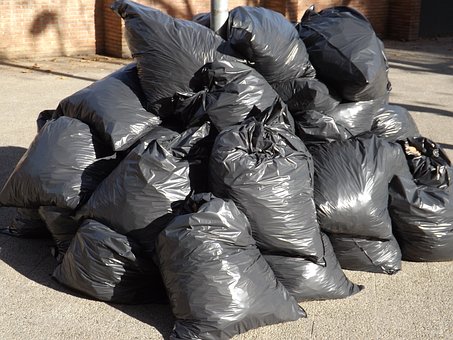Welcome to KDS Environmental
Reliability
100%
Affordability
100%
Professionalism
100%
Reputation
100%
 It is no secret that the amount of home waste produced is increasing year after year at an alarming rate, and federal governments are under pressure to broaden existing landfills or build new ones to accommodate the waste that is being produced.
It is no secret that the amount of home waste produced is increasing year after year at an alarming rate, and federal governments are under pressure to broaden existing landfills or build new ones to accommodate the waste that is being produced.
What is Hazardous Home Waste?
Home waste is leftover from home products. Hazardous home waste are home products which contain chemicals that have the potential to impact plants, the health of human beings and animals and are damaging to the environment when handled improperly
Inappropriate management of home waste has the potential to be extremely damaging to the environment, individuals, and animals. What many of us might not understand is that many of those common home products contain corrosive, poisonous, or flammable chemicals that can be hazardous to the environment if not handled or managed correctly.
Hazardous home waste should not be disposed of in the same way as routine waste. For example, gas can be buried in the ground, can impact rivers, and find its way into drinking water. The hydrocarbons in motor oils or pesticides have the potential to bio-accumulate in freshwater fishes and can find its way in the food cycle. Burning contaminated materials causes the release of poisonous chemicals and fumes in the air. Once released into the environment, these chemicals are dispersed over big locations, consequently impacting the health of individuals over a wider area.
Some of these chemicals remain in the systems of plants and animals for a long period of time and might enter the food cycle when the impacted plants and animals are consumed.
 Bioaccumulation of hazardous substances in the systems of plants, animals, and human beings has the potential to impact their reproductive lives, development, impair the function of various organs such as the liver and kidneys, impact the performance of the central nerve systems and body immune systems of human and animals and some have been listed as known carcinogens.
Bioaccumulation of hazardous substances in the systems of plants, animals, and human beings has the potential to impact their reproductive lives, development, impair the function of various organs such as the liver and kidneys, impact the performance of the central nerve systems and body immune systems of human and animals and some have been listed as known carcinogens.
How Can You Tell a Product is Hazardous?
Read the labels of products. In Dittlinger and other parts of the country, labels are required for all products. These should provide info on the constituents of the products, including signs and words, to indicate the threat to animals, human beings, and the environment if mishandled.
How To Tell If Products Are Hazardous?
Always check out the label of products in your home and make it a routine of reading the labels of a product before deciding to acquire them.
What Can You Do to Handle Hazardous Waste?
Purchase Eco-friendly Products – Experts agree that the very best way to control waste is to not produce it in the first place. You can start by avoiding the purchase of products which contain chemicals that are harmful to human beings, animals, and the environment. Purchase those products that are naturally degradable or friendly to the environment.
Safe Product Storage – Ensure that hazardous products are kept in a safe place, that their containers are not harmed, do not have any leaks to reduce the threat of contaminating water sources, land, human beings, animals, plants, and the environment. Ensure that corrosive products like acids are stored in separate locations from other hazardous products.
Check products regularly to ensure that there are no leaks and broken lids or bulging sides.
Always store products in their initial containers to prevent unintentional use.
Ensure that these products are stored in a place where children and animals have no access to them.
Disposal of Products – Disposal of products should constantly be the last resort. Why? Due to the fact that there are no safe ways of disposing of contaminated materials. You can prevent the dilemma of contaminated materials disposal by either choosing naturally degradable products, recycling the product, giving the excess products to friends, next-door neighbors, or family or purchasing smaller volumes of the product.
 If, however, disposal is inescapable, then you should dispose of the waste in the way recommended on the label.
If, however, disposal is inescapable, then you should dispose of the waste in the way recommended on the label.
Although there are laws to manage the handling and use of big amounts of contaminated materials, the existence of laws to manage the normal small quantities produced at the home is non-existent. For this reason, the responsibility for the management of contaminated materials falls directly on the shoulders of the contaminated materials generators.
Protection of the environment can only happen when you contribute in finding creative ways to re-use, recycle, or reduce waste. This is important if we are to safeguard the environment and health of future generations. Remember that Waste Management is Your Business, My Business, Our Business.
if you are in Dittlinger or Solms, Jentsch Acres, Landa Park Highlands, New Braunfels, Comal, Corbyn, Northcliff, Preiss Heights, Ogden, Gruene, call us now!
We are experts in environmental clean-up, and we can help you with eradicating dangerous items in your home. Our number one goal is to ensure that the environment is safe for everyone to live in, and your health is protected. Get in touch with us today and get a free, no-obligation quote.
We are the best eco-friendly company you can trust in Solms, Jentsch Acres, Landa Park Highlands, New Braunfels, Comal, Corbyn, Northcliff, Preiss Heights, Ogden, Gruene and Dittlinger.